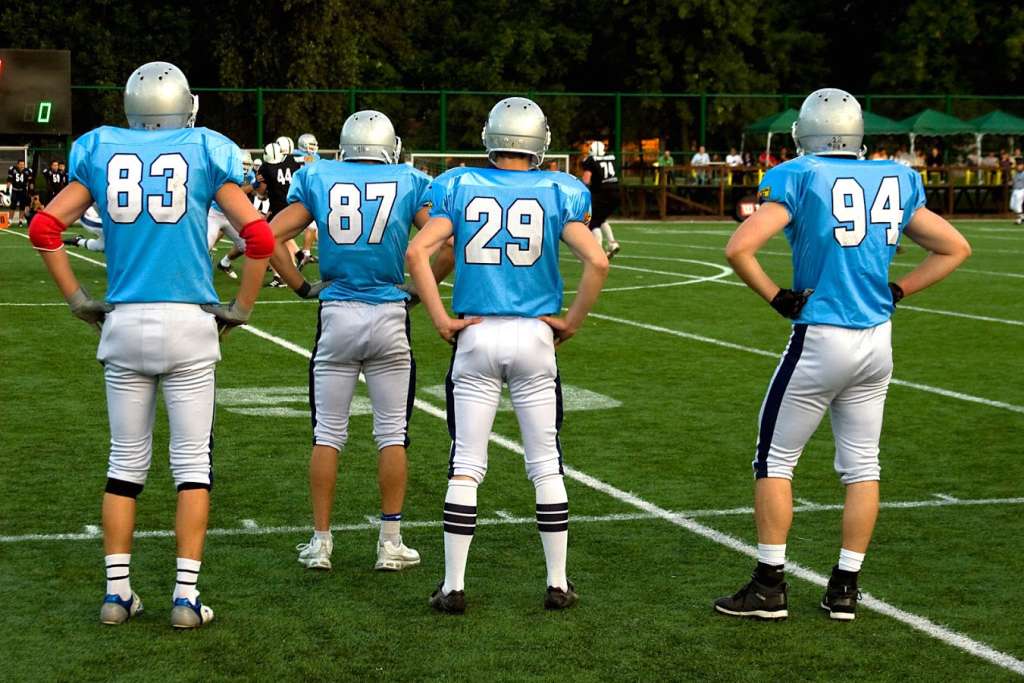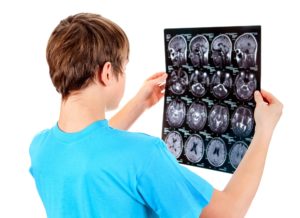Signs and Symptoms of a Concussion in Teens and Children
Has your teen or young one suffered a head injury? If they have, or if you want to be prepared just in case, you’ll want to know what to look for in case of a concussion.
In the United States, traumatic brain injury is suffered most by young children under four years of age, teenagers, and adults who are past retirement age. While sports activities can lead to concussions in children and young adults, any jolt to the head can cause a concussion.
Parents should understand how to recognize concussion signs and symptoms in their children, teens, and loved ones. Parents should also understand treatment options and long-term management guidelines. We have detailed them below.
The 5 Main Symptoms of a Concussion
For brevity’s sake, we have broken down the 5 most common signs and symptoms of a concussion in children, adolescents, and young adults. Here they are:
1. Headache or Dizziness
A concussion is essentially a brain injury, often mild, that is caused by the brain being knocked against the skull. Because of this, your daughter will often complain of a headache.
A person with a concussion can also feel dizzy, and will often look dizzy. Your daughter may also complain of vision problems, blurred vision or “seeing double.” Exposure to light doesn’t clear things up and may even make her feel even worse.
2. Confusion and Decreased Faculties
Confusion often accompanies a concussion, as do a few minor functional issues. Your son may have difficulties remembering the event. He may show signs of slurred speech and not respond to questions as quickly as he usually does.
In addition, a concussion can also wreak havoc on your teen’s neurological and cognitive functions. If this occurs, your daughter shows (or complains of) an inability to concentrate on activities, including schoolwork, media, and games.
3. Physical Symptoms
Sensory symptoms are also sometimes seen in patients who experience a head injury. The symptoms include feeling strange twitches, “shocks,” or buzzing sensations. There may be strange feelings of being disassociated from one side of the face or body.
In addition to the vision problems articulated in point 1, your child or teen may complain of eye weakness. Many of the above symptoms are stronger in concussion patients who also suffer a great deal of pain from their head injuries.
Other physical symptoms include coordination issues, shortness of breath, nausea, and vomiting.
4. Emotional Symptoms
Children, adolescents, and teenagers may become anxious, irritable, or angry when they can’t perform tasks and chores. Note that it is not uncommon for a concussed person to become depressed. Be on the lookout for any odd emotional patterns or personality changes in your daughter.
5. Abnormal Sleep Patterns
In some cases, symptoms of a concussion can last for days to even months. Note that persistent symptoms are most common in children and teenagers (and the elderly; however, we do not have space to discuss this demographic here.) Persistent symptoms are especially common if the person has suffered a concussion before.
In such cases, you may notice your son sleeps more than usual. On the other hand, he may also complain of insomnia. Contrary to popular belief, it is not dangerous to fall asleep with a concussion. In fact, sleep is recommended to help the body rest and heal itself.
All the same, you may want to take this with a grain of salt. While a person with a concussion definitely needs sleep, you’ll need to make sure that it is just a concussion. More serious conditions could cause harm if you allow your son to sleep.
Diagnosing Your Child or Teen’s Concussion
 It’s important that you take your daughter to be evaluated as soon as possible after any injury to the head, no matter how minor the head bump seems. Even a relatively light jolt to the brain can cause significant impairment in certain cases.
It’s important that you take your daughter to be evaluated as soon as possible after any injury to the head, no matter how minor the head bump seems. Even a relatively light jolt to the brain can cause significant impairment in certain cases.
Medical professionals have a variety of tests they can run to diagnose purely physical injury to the head. X-rays, MRIs, and other diagnostic methods will identify cuts, wounds, and other trauma.
Cognitive and sensitivity injuries are a bit harder to recognize with machines or tests. Your child’s doctor will rely on you and your child’s reports about signs and symptoms. Note any and all symptoms your child is feeling or displaying so your physician can get a complete picture of the concussion’s effects on your child.
The physician may test your child’s blood, urine, and electrolyte levels to check for markers of injury or signs of impairment. The child’s balance may also be assessed for later comparison.
Treatment
Regardless of the situation, your son should always be taken to a doctor. Do not let the situation linger. On the rare chance that something more serious has occurred, the doctor will be able to spot it and be better equipped to treat it. However, if the doctor determines that he has a concussion and nothing more, your doctor will recommend sleep. Your doctor may decide to keep him overnight or send him home.
In addition, physicians often recommend that your child take it easy for a time following the concussion. A very serious problem, called Second Impact Syndrome, can occur if a new head injury follows the first. For this reason, it’s vital that you make certain no activities that could lead to a second concussion are allowed. Your doctor will advise you when it’s safe for your child to resume sports and rougher play.
Besides behavioral recommendations, doctors recommend over-the-counter medications or sometimes prescription medications to deal with physical pain. Physical therapy and exercise may also be employed to help with sensory symptoms and lingering dizziness.
Your child may also be asked to take a break from TV, schoolwork, and other tasks and activities requiring focus and concentration. This time should include a break from playing video games and using phones and other devices. Doctors generally recommend resting for about a week to allow the brain to heal.
Managing Long-Term Concussion Issues
Most symptoms of concussion disappear after a short time. If physical, cognitive, or emotional symptoms linger or grow worse months after the head injury, the incident may have caused long-term changes in your child’s physical and neurological systems. Your child’s doctor may order additional therapies and treatments to help manage long-term concussion problems.
A neuropsychologist may be consulted to help you and your child understand and cope with the sensory and emotional changes resulting from a head injury. The neuropsychologist has an assessment tool known as the Glasgow Coma Scale (GCS) that uses 15 points to evaluate motor, verbal, and visual responsiveness.
After assessing your daughter, the neuropsychologist can offer treatment options, advice, and counseling to help you and your daughter understand the concussion and its effects on her. The neuropsychologist will work with her other medical professionals to devise treatments and therapies to help manage the concussion.
Contact NeuroHealth for Help Managing Short- and Long-Term Concussion Issues
Contact NeuroHealth Arlington Heights today to discuss your child, teen, or loved one’s head injury. We’re here to support you and your family with state-of-the-art diagnostics and solution-oriented treatment.
Tags: children with concussions, concussion signs, concussion symptoms, teenagers with concussions

